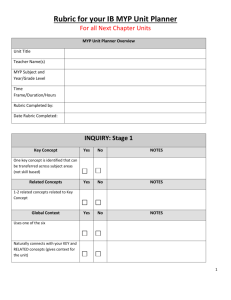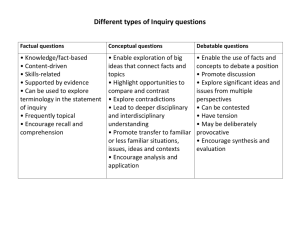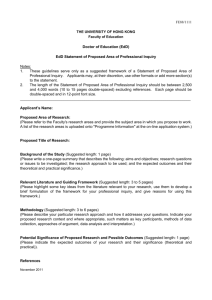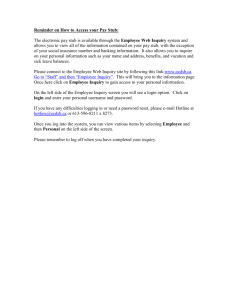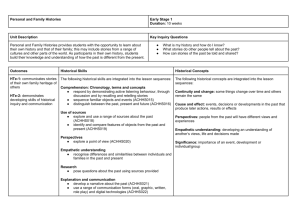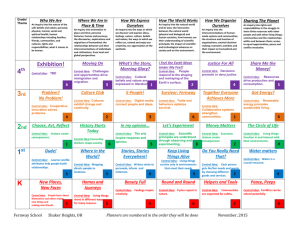MYP PLANNER PRESENTATION
advertisement
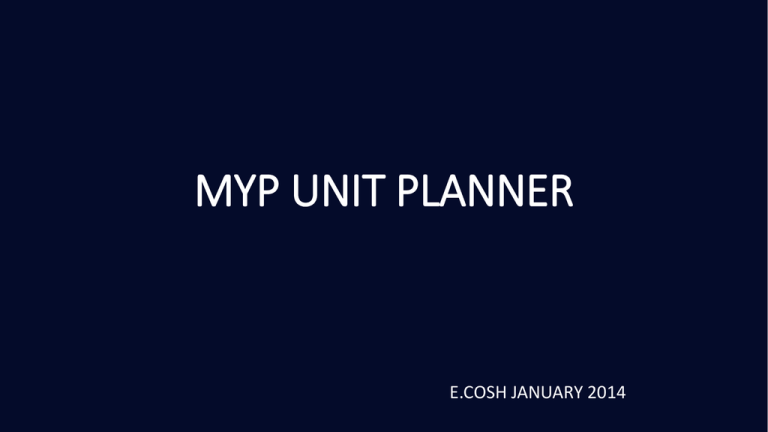
MYP UNIT PLANNER E.COSH JANUARY 2014 MYP UNIT PLANNER 1- Inquiry: Establishing the purpose of the unit • Key and related concepts • Global contexts • Statement of inquiry • Inquiry questions • Subject group objectives • Summative assessment • Approaches to learning (ATL) Factual questions Conceptual questions Debatable questions • Knowledge/fact-based • Content-driven • Skills-related • Supported by evidence • Can be used to explore terminology in the statement of inquiry • Frequently topical • Encourage recall and comprehension • Enable exploration of big ideas that connect facts and topics • Highlight opportunities to compare and contrast • Explore contradictions • Lead to deeper disciplinary and interdisciplinary understanding • Promote transfer to familiar or less familiar situations, issues, ideas and contexts • Encourage analysis and application • Enable the use of facts and concepts to debate a position • Promote discussion • Explore significant ideas and issues from multiple perspectives • Can be contested • Have tension • May be deliberately provocative • Encourage synthesis and evaluation 2- Action: Teaching and learning through inquiry • Content (selected or required) • Description of the learning process – Learning experiences and teaching strategies – Formative assessment – Differentiation • Resources Differentiation….“a teacher’s response to the diverse learning needs of a student” C.A Tomlinson Zone of Proximal development Lev Vygotsky (1978) “…within which new learning can take place if there is support” The language and learning cycle of good practice (based on the work of Jim Cummins, 2007), 3- Reflection: Considering the planning, process and impact of the inquiry • Prior to teaching the unit • During teaching • After teaching the unit DISPLAY IN THE CLASSROOM- for each unit Unit title Key & Related concepts Global context Statement of inquiry Unit questions ATL Make students aware of this. Copy in notebook During unit and learning experiences, make reference to it.


